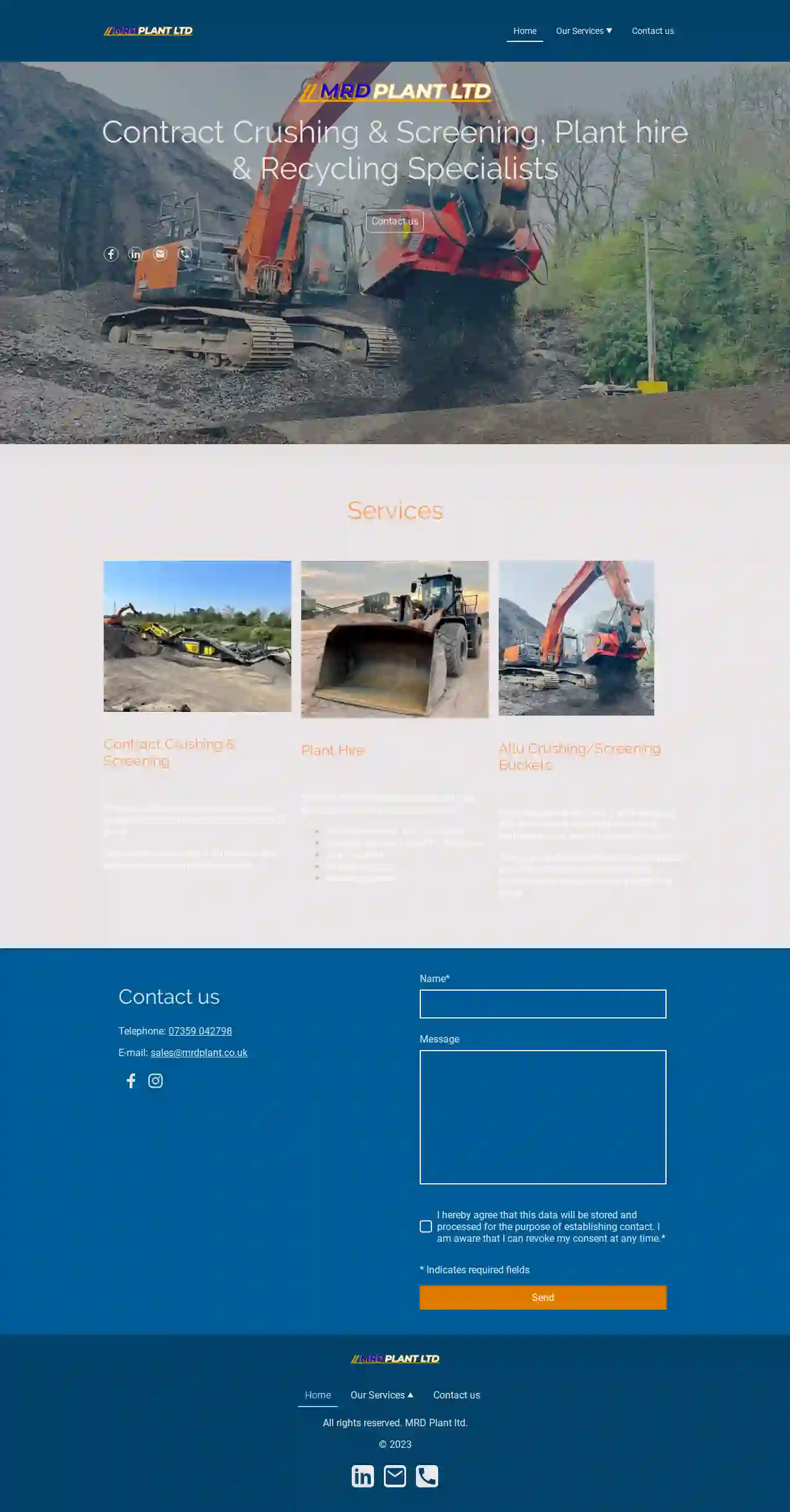Demolition Contractors Tamworth
Top Building Demolition in Tamworth
Get up to 3 Demolition Contractors quotes for your project today! Compare profiles, reviews, accreditations, portfolio, etc... and choose the best service.
- Mi
Mick's Excavations
51 reviewsTamworth, GB- Services
- Why Us?
Get Quote - R
R J H Plant Hire Ltd
51 reviewsTamworth, GB- Services
- Why Us?
Get Quote - Ba
Balfour Beatty VINCI
52 reviewsTamworth, GB- Services
- Why Us?
Get Quote - Lo
Lovell Partnerships
414 reviewsTamworth, GB- Services
- Why Us?
Get Quote 
MRD Plant
180 Barton Road, Congerstone, CV13 6NB, GBMRD Plant: Your Trusted Partner for Crushing, Screening, and Plant Hire MRD Plant is a leading provider of contract crushing and screening, plant hire, and recycling services across the UK. We are committed to delivering high-quality, efficient, and reliable solutions to meet your specific needs. Our modern processing equipment and mobile plant ensure we can handle any aggregate processing requirement, no matter how big or small. Our Services We offer a comprehensive range of services, including: Contract Crushing & Screening: We provide nationwide coverage with our modern processing equipment and mobile plant. We are able to provide a solution to any aggregate processing requirement. Plant Hire: We offer a wide range of plant for hire, both non-operated and operated, including: Excavators from 10 - 30 tonnes Loading shovels from 10 - 25 tonnes Jaw crushers Impact crushers Mobile screeners Allu Crushing/Screening Buckets: We specialize in offering a wide range of Allu transformer buckets to meet the requirements of almost any application. These buckets can be fitted to either an excavator or a loading shovel, transforming the machine into its own mobile processing plant. At MRD Plant, we are dedicated to providing our clients with the highest level of service and support. Our team of experienced professionals is committed to working closely with you to understand your specific requirements and deliver a solution that exceeds your expectations.
- Services
- Why Us?
- Gallery
Get Quote
Over 11,537+ Excavation Pros registered
Our excavation pros operate in Tamworth & surrounding areas!
ExcavationHQ has curated and vetted the Best Excavation Contractors arround Tamworth. Find the most trustworthy pro today.
Frequently Asked Questions About Demolition Contractors
- Dust Suppression: Use water spraying, misting systems, or other dust suppression techniques to control airborne particles.
- Noise Barriers: Erect temporary noise barriers around the demolition site to reduce noise transmission to nearby properties.
- Work Schedule: Schedule noisy demolition activities during permitted hours to minimize disturbance to neighbors.
- Communication: Keep neighbors informed about the demolition schedule and any potential disruptions.
- Recycling: Concrete, brick, metal, and wood can be recycled and reused in other construction projects, reducing waste sent to landfills.
- Landfill Disposal: Non-recyclable materials are disposed of in designated landfills according to local regulations.
- Donation: Some materials, such as fixtures or appliances, may be suitable for donation to charitable organizations.
- Waste Generation: Demolition generates a large volume of debris, contributing to landfill space and potentially releasing harmful substances into the environment if not disposed of properly.
- Air Pollution: Dust and particulate matter released during demolition can impact air quality, affecting human health and the environment.
- Noise Pollution: Demolition activities can generate significant noise, disturbing nearby residents and wildlife.
- Resource Depletion: Demolition consumes resources that could be salvaged and reused, contributing to resource depletion and environmental degradation.
What is the difference between demolition and deconstruction?
Demolition: Typically involves bringing down a structure quickly and efficiently, often using heavy machinery and potentially explosives. The primary goal is to clear the site.
Deconstruction: Focuses on carefully dismantling a building piece by piece to salvage reusable materials. It prioritizes minimizing waste and environmental impact, often involving manual labor and specialized tools.
The choice between demolition and deconstruction depends on the project's objectives, budget, and environmental considerations.
How can I minimize the dust and noise from demolition?
What happens to the debris after demolition?
What are the environmental impacts of demolition?
What is the difference between demolition and deconstruction?
Demolition: Typically involves bringing down a structure quickly and efficiently, often using heavy machinery and potentially explosives. The primary goal is to clear the site.
Deconstruction: Focuses on carefully dismantling a building piece by piece to salvage reusable materials. It prioritizes minimizing waste and environmental impact, often involving manual labor and specialized tools.
The choice between demolition and deconstruction depends on the project's objectives, budget, and environmental considerations.
How can I minimize the dust and noise from demolition?
- Dust Suppression: Use water spraying, misting systems, or other dust suppression techniques to control airborne particles.
- Noise Barriers: Erect temporary noise barriers around the demolition site to reduce noise transmission to nearby properties.
- Work Schedule: Schedule noisy demolition activities during permitted hours to minimize disturbance to neighbors.
- Communication: Keep neighbors informed about the demolition schedule and any potential disruptions.
What happens to the debris after demolition?
- Recycling: Concrete, brick, metal, and wood can be recycled and reused in other construction projects, reducing waste sent to landfills.
- Landfill Disposal: Non-recyclable materials are disposed of in designated landfills according to local regulations.
- Donation: Some materials, such as fixtures or appliances, may be suitable for donation to charitable organizations.
What are the environmental impacts of demolition?
- Waste Generation: Demolition generates a large volume of debris, contributing to landfill space and potentially releasing harmful substances into the environment if not disposed of properly.
- Air Pollution: Dust and particulate matter released during demolition can impact air quality, affecting human health and the environment.
- Noise Pollution: Demolition activities can generate significant noise, disturbing nearby residents and wildlife.
- Resource Depletion: Demolition consumes resources that could be salvaged and reused, contributing to resource depletion and environmental degradation.